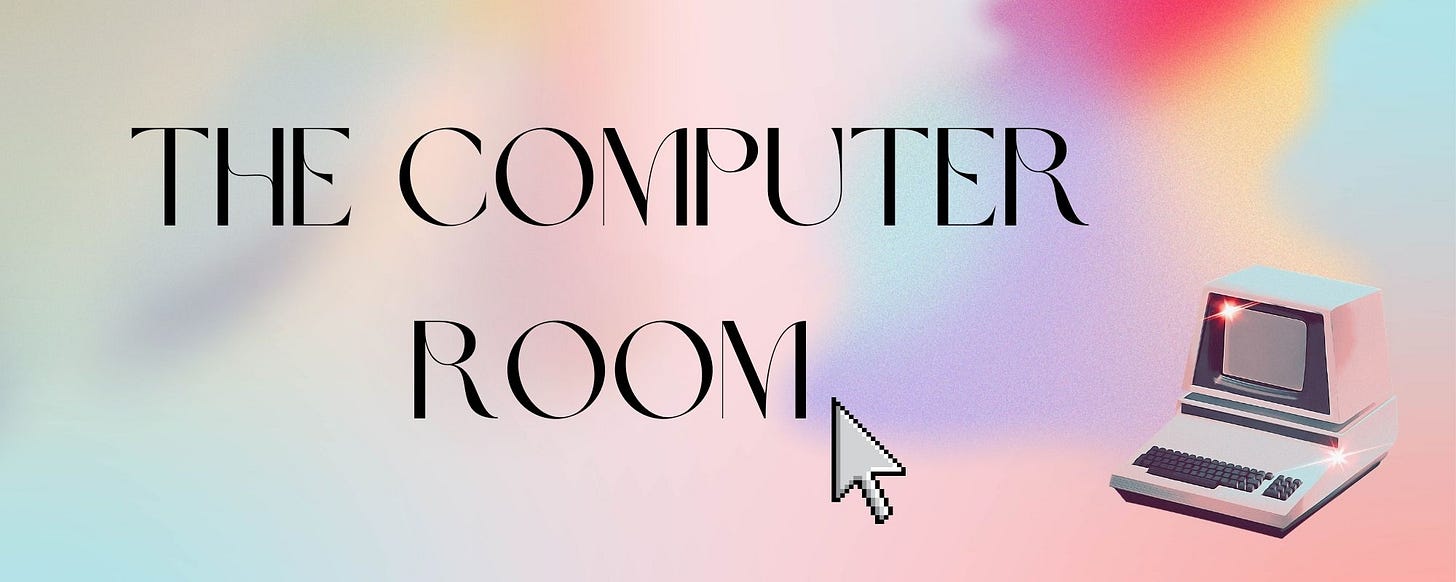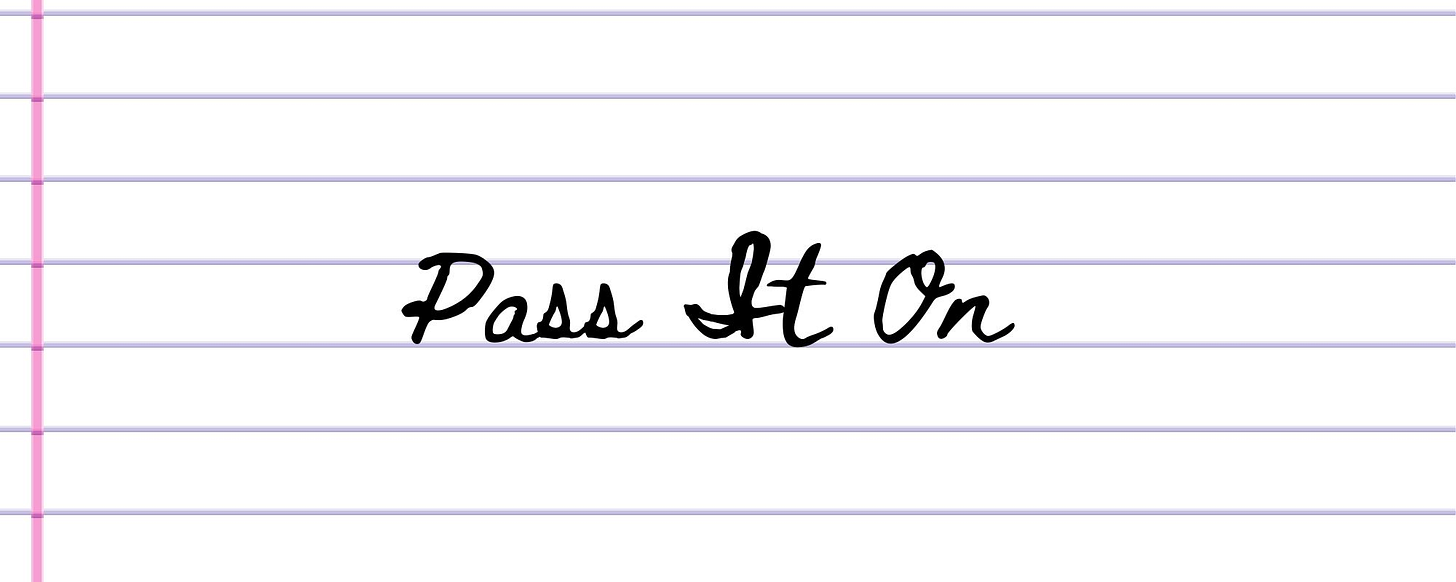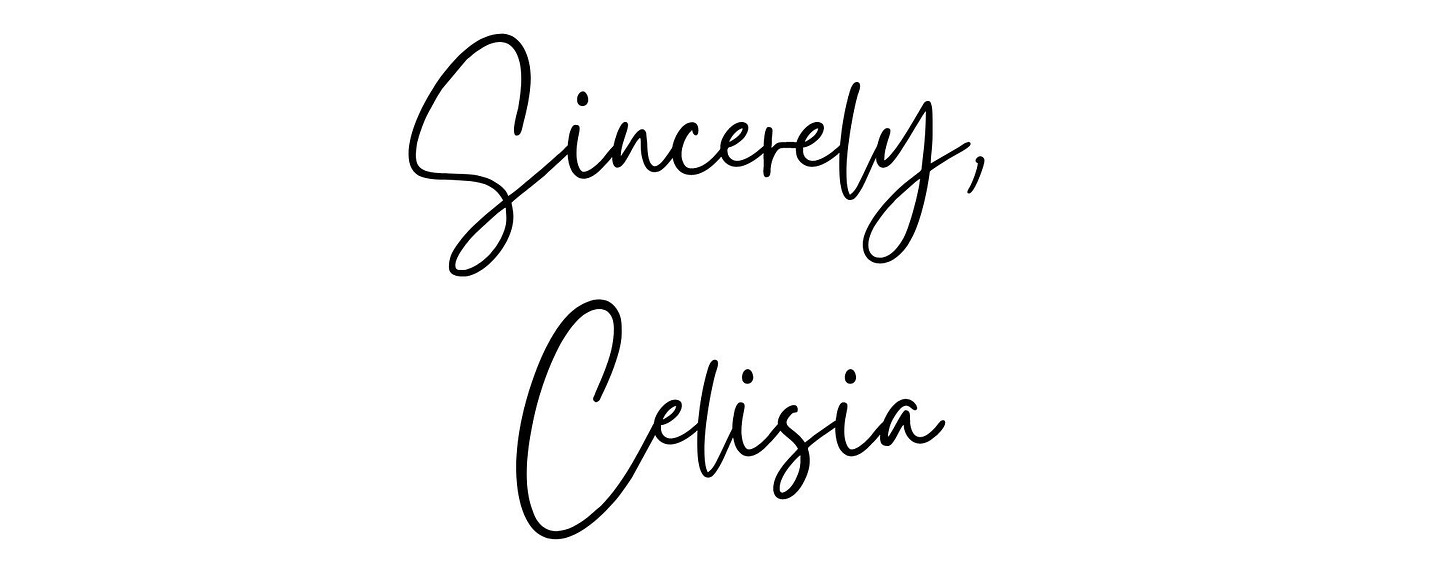Why Being 'Right' on the Left Is Missing the Point (Issue #74)
Has our obsession with “accountability” become a dangerous distraction?
Hi friends!
I’ve never been apolitical. I don’t think someone like me really can be. Even in my earliest memories, I understood that my identity was shaping my experiences in a way that was inherently political. I was a Black girl navigating the world alongside my gay mom and immigrant grandparents – politics followed me around whether I liked it or not. But still, my radicalization was a gradual process, taking shape over the years as I gained tangible language to describe and better understand what I’ve known to be true my whole life.
I don’t know when I first learned the term “leftist,” nor when I specifically started identifying as one, though I know it happened sometime shortly after my 2013 high school graduation. My experiences at that time were largely shaped by a shifting political landscape and a rising Black Lives Matter Movement — the killing of Trayvon Martin in 2012, Ferguson in 2014, Bernie Sanders run in 2015, the murder of Minnesota’s own Philando Castile in July of 2016 followed by Trump’s election that fateful November. Leftism and the values it espoused shouldered up my community. They offered a refuge from the terrible realities of the world and promised a future where everyone had what they needed, and healing took precedence over punishment.
Then, in 2020, George Floyd was murdered by police in Minneapolis. In just a few days, my city transformed into a hub of political resistance. In many ways, this time solidified my belief in the broader leftist community. Local activists and organizations mobilized pretty much overnight during the height of the pandemic. Almost immediately, they were there to distribute educational materials on police violence, organize neighborhood cleanups, distribute food and other necessary supplies to community members in need, direct support to bail funds for protesters, and so much more. It was all so powerful to witness, and it gave me hope that we could build something better. But over time, I began to see a more complicated truth about the sustainability of these kinds of movements.
During this time and in the months following, a lot of people were publicly called out for their behavior. At first, it seemed focused on celebrities and influencers who continued to post online as normal, even as their followers begged them to show vocal support for Black Lives Matter. But over time, these callouts broadened, extending to people already committed to the movement. Folks whose life’s work was invested in justice and transformation. Of course, that’s not to minimize the real harm some of these folks did perpetuate. In some cases, I’m sure these callouts were important and necessary. But in so many others, it seemed like people who were doing really good work in their communities were getting shut down and sometimes completely de-platformed with little recourse. Soon, I watched the same organizations that kept people afloat during the uprising crumble in the months after. It didn’t sit right with me, but I was hesitant to speak on it publicly.
Then, I read How The F Did We Get Here? by
in her Substack . Ijeoma has done tons of incredible work, but she is perhaps most well-known for her book “So You Wanna Talk About Race,” which topped countless reading lists during the summer of 2020. In her piece, Ijeoma shares about the launch of her newest book, “Be A Revolution,” which featured interviews with over 30 movement workers. But during the book’s release, one of the people who’d previously agreed to be featured claimed the book had caused them harm and, without giving Ijeoma much of a chance to right the wrong, began a public campaign against her. The details Ijeoma shares are important to understanding this specific interpersonal conflict, so I recommend you check it out if you’re interested in further context.Throughout the piece, Ijeoma challenges how leftist spaces have accepted that interpersonal conflict is reason enough to revoke someone’s right to exist within the movement.
“In a world where so many of us are disempowered, where every day we are harmed by people and systems that are unaccountable to us, that don’t give a fuck about us – it can feel really good to be given the name of a person, any accessible person, who is doing harm. So maybe you can’t fight the system that is actively harming you right now. Will you settle for dragging this person who offended someone you barely know for filth? Will you settle for getting a stranger fired from their job because someone says so? Will you settle for demanding that a book be pulled from the market over an issue you know nothing about? For many people, desperate for some feeling of agency, the answer is a resounding ‘Hell yes.’”
Ijeoma connects this directly to the increasingly digital world we currently live in. I’ve seen this myself, perhaps most clearly since the rise of TikTok. During this time and since, the high schoolers I coached in debate seemed much more aware of leftism than previous students. At practice, they discussed its principles and seemed almost fluent in its vocabulary. At first, I was impressed. These kids knew so much more about these issues than I had at their age. But before long, I noticed something else, too. Underneath this constant chatter of therapy-language and leftist-speak, there wasn’t much depth. They had been taught the “rules,” and they had an almost puritanical commitment to follow them. All of this, of course, is made worse through the internet, whose algorithms reward divisive, black-and-white thinking and the creation of “in” and “out” groups. And no matter how performative it sometimes feels, simplistic internet leftism makes sense to me – if being ‘virtuous’ was as simple as a few phone taps, wouldn’t you join in too?
But it’s a catch-22 because subscribing to this form of leftism requires more than just agreeing with its core philosophy. As
wrote in her brilliant piece why don't I feel aligned with leftists?“there’s so much pressure within leftist spaces and communities to never, ever engage in life in ways that might contradict. your politics must remain pristine. your joy should not overlap with the atrocities of the world and, if it does, god forbid you share it. there’s only one right way to trek down the yellow brick road to socialism, or communism, or anarchy (houses to paint with what fucking tools?). be perfectly versed and opinionated or be punished, ideally publicly, through tools such as shame and rejection.”
You’ll definitely want to read Dionne’s piece in full. In it, she also makes some great comparisons between modern, dogmatic leftism and evangelical Christianity. It was a reflection that resonated with me deeply. It's troubling because if leftism just becomes a new “set of rules” to follow, isn’t it destined to fall short? We’re social creatures. We live in community with one another — not just because we want to, but because we have to. Because we need each other. But interpersonal dynamics are complicated and evolving, messy and malleable. Even if the “right choice” was always clear, which it rarely is, how can anyone get it right all the time? And why should we expect them to?
At the height of the racial reckoning of 2020, the energy and resources in the Twin Cities seemed almost endless. Which is why it felt so disappointing to watch several organizations implode after vague allegations of “harm” circulated online. And sure, maybe it was time for these organizations to sunset. Maybe the “harm” wasn’t something that could have been resolved. But are we really better off in a world without them at all? And who actually gets “canceled”? Because it sure as hell isn’t Elon Musk or Donald Trump or anyone else with real power. The only people I’ve seen truly lose their platforms, the only organizations I’ve seen really impacted by the rules of the left, are the same ones committed to this cause in the first place.
No matter the movement we’re building, harm between folks is real and inevitable. But I want us to really challenge ourselves to think about our movements' longevity.
Dionne ends her piece with this thought:
“I want to be morally and ethically solid, while still having a soft heart and the courage to allow myself to be imperfect. I want to have more passion for breaking down systems than I’ve seen us have for bringing down individuals. I’m tired. and there’s fucking work to do.”
For years, I deliberately decided to keep these thoughts as far away from the internet as possible. It's why I commend folks like Ijeoma and Dionne, whose vulnerable shares have opened a much larger and incredibly urgent conversation.
And, of course, I have more questions than answers, but what I do know is this: Leftism – as some discrete ideology, as a set of rules, as God – is never going to save us. Only we can do that. And we’ll only get there in community with one another as a collective committed to something bigger, better, and everlasting.
A round-up of things to watch, read, and listen to as you head into the weekend.
Podcast: Tested
This podcast dives into the history of sex testing in elite sports and closely follows the still-unfolding stories of track and field athletes Christine Mboma and Maximila Imali. Both were assigned females at birth and raised as girls, but now may not be able to compete due to their body’s natural levels of testosterone which some argue gives them an unfair advantage. As the podcast description states, the show “explore[s] a question that goes far beyond sports: What is fair and who decides?”
Substack: Why Kamala Did the Call Her Daddy Interview by
inIn political news, Kamala Harris’ decision to go on Call Her Daddy was a strategic one. I’ve listened to a lot of breakdowns of the interview and associated campaign strategy, and really appreciated
’s summary and highlights. In short, the Harris campaign is seeking to reach undecided voters, and Alex Cooper’s platform might be the perfect way to do just that.
Axios: ¡Feliz Navidad, Charlie Brown! by Russell Contreras
Andrew randomly sent me this article, and it was a great read for some Peanuts history! The director of the 1965 special "A Charlie Brown Christmas" was Bill Melendez, a Mexican American animator, producer, and voice actor. I loved learning about his contribution to this Christmas classic, and now have some new fun facts for my arsenal.
Things to try + share in the group chat.
Note: Links preceded by an asterisk (*) are affiliate links that allow me to collect a small commission when you purchase something I’ve recommended. That said, I can promise I’ll only ever share items I love. Buying through these links is one way to support me and my small biz. ❤️
This past August, I saw Chance the Rapper at the Minnesota State Fair, and it was probably my favorite concert experience yet. BUT the show almost didn’t happen. Turns out he’d been pressured to cancel due to low ticket sales. Thankfully, rather than canceling, Chance did what any good artist would do — he wrote a song about it. Titled 3333 in honor of the number of tickets he’d sold to fans like me, Chance really threw down with this one, and hearing him play it live was the icing on the cake! His lyricism is always top notch and I promise, it’s well worth the listen!
I’m a long-time fan of the
Substack , so when she finally dropped a new *cookbook inspired by her newsletter, I had to have it. The recipes are organized by the time they take to make, and I’m obsessed that there are 21 recipes that take 15 minutes!!! I’ve made a few things so far (all delicious), and I’m excited to keep working my way through this book during a busy fall season.
Last week I wrote about end-of-life care, multigenerational homes, and the ways we support each other when systems *don't*. Check it out here!
Have a great weekend!
Want to stay connected between now and next Friday? Don’t be a stranger!! Make sure to follow me on Instagram and TikTok. Know someone who you think would like Sincerely, Celisia? It would mean the world if you could help spread the word by sharing this newsletter through the button below!! <3






Thank you for writing this. SO well said. The dogmatism and purity tests of the progressive movement threatens to completely tank its ideals and we need to talk about it more